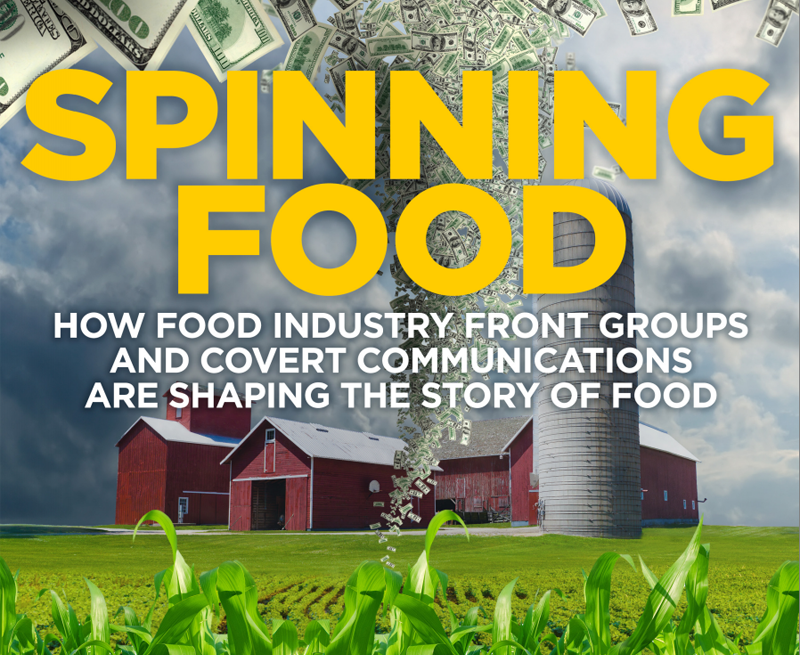As Americans become more conscious of what’s in the food they are eating and feeding their families, industrial food and chemical producers have been spending hundreds of millions of dollars on a public relations campaign to confuse consumers and drive the media narrative about their products.
These are the findings from a new report issued by Friends of the Earth titled “Spinning Food”. The report discusses the massive public relations campaign big food has put together to keep consumers in the dark and keep them buying their products.
Over the last few years, consumers have become more engaged with where their food comes from, and how it is made. Last year alone, industrial food producers lost $4 billion dollars in revenue as shoppers migrated to organic and fresh options. This poses a major threat to the bottom lines of many of the nation’s largest producers of packaged foods and agricultural chemicals. Their plan is take a page out of big tobacco’s playbook and throw money and public relations specialists at the problem.
The report outlines how the industry has funded a growing number of front groups to spread the industry’s message while giving the appearance that it is coming from independent organizations.
These industry front groups include organizations such as the U.S. Farmers and Ranchers Alliance, the Council for Biotechnology Information and the Coalition for Safe Affordable Food. The organizations outlined in the report have spent over $125 million dollars (that we know about) since 2009 to try and drive the conversation about food in this country.
The industry has also developed a number of core messages that they see as essential to maintaining their profits and market share. The messages range from “organic food advocates are elitist food nannies” to “we need GMOs to feed the world” to “the science is settled – GMOs are safe”. These overly simplistic claims gain traction in the media when they are repeated over and over again, but the truth is much more complicated than these soundbites would suggest.
Research shows that GMOs alone will not in fact feed the world. We will need a multi-pronged approach that incorporates not only sustainable diversified agricultural practices, but better access to land, water and infrastructure for small scale farmers around the world. Industry talking points also discount the fact that there is great debate among the global scientific community as to the safety of GMO foods. In December of 2015 the journal Environmental Sciences Europe published a paper signed by over 300 scientists discussing why the claim that there is scientific consensus on the safety of GMO foods is misleading. The paper says that the industry spin “is misleading and misrepresents or outright ignores the currently available scientific evidence and the broad diversity of scientific opinions among scientists on this issue.”
One of the most enlightening aspects of the report is a review of the tactics used by the industry to amplify their message and discredit anyone who speaks in opposition. To give industry messages the façade of legitimacy they have turned to a number of new tactics including trying to co-opt “mommy bloggers” and conducting smoke-and-mirrors social media campaigns.
According to the report, “Companies are hiring [public relations] firms to develop social media campaigns, staffing up internally with online engagement positions and recruiting third party bloggers and individuals on twitter and Facebook to share industry friendly messages and resources designed to look like informational websites, but built and run by industry front groups and trade associations.”
Another choice tactic is directly attacking scientists and journalists who present balanced views on issues surrounding GMOs. The industry uses charged language and character attacks to distract from content and discredit those who present opposing views. One example of this is the reporting on Carey Gillam from Reuters who faced massive backlash after reporting that there was debate among the scientific community about the safety of GMO foods. The industry tried to paint her as prejudiced, and publicly accused her of sloppy and biased writing. The report goes on to outline a number of other troubling tactics from paying third party allies to present “independent” points of view to the concerted effort to paint all those who question the necessity and safety of GMOs as anti-science and akin to climate deniers.
The report offers a deep dive in to the industrial food spin machine aimed at halting system change and maintaining corporate profits. You can read the full report here.

